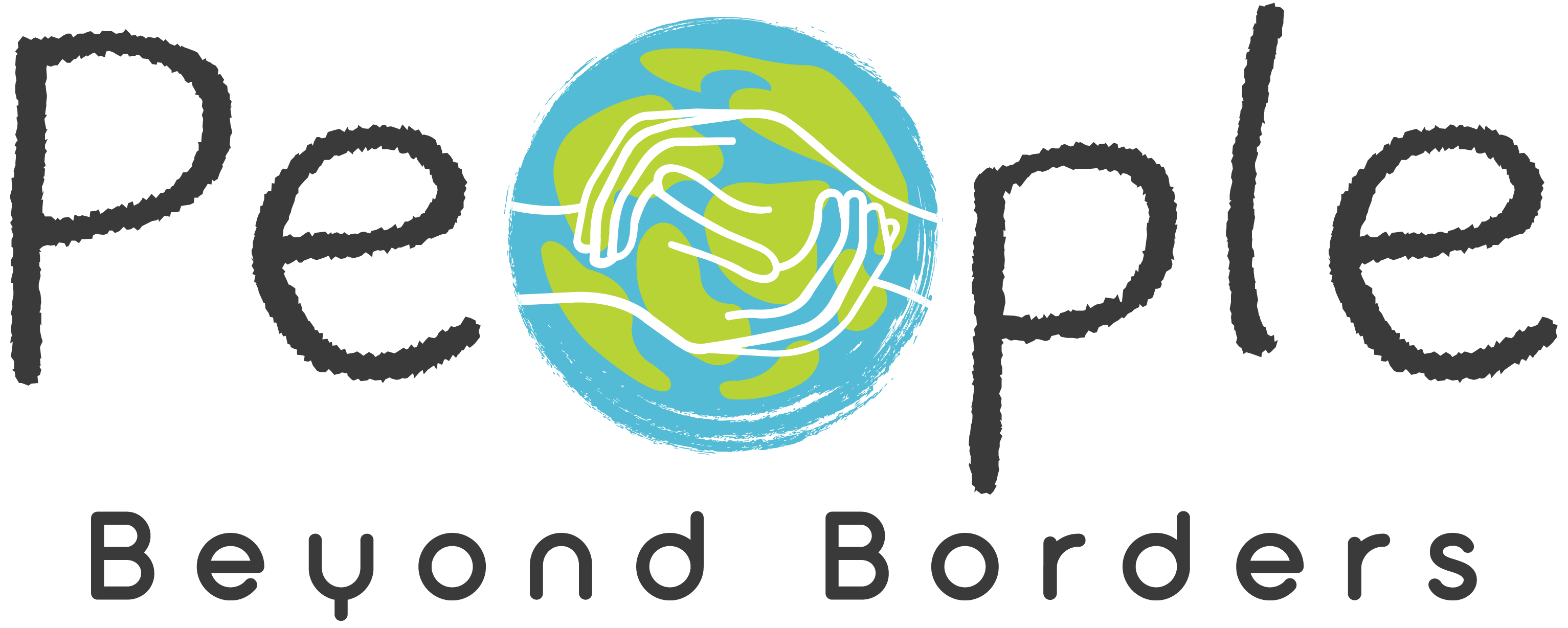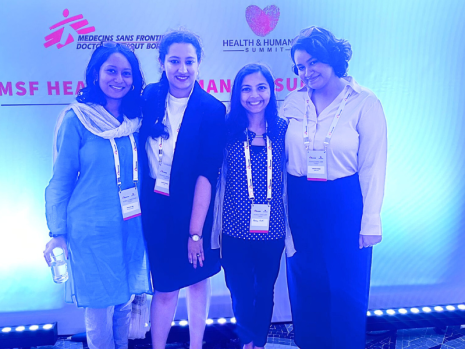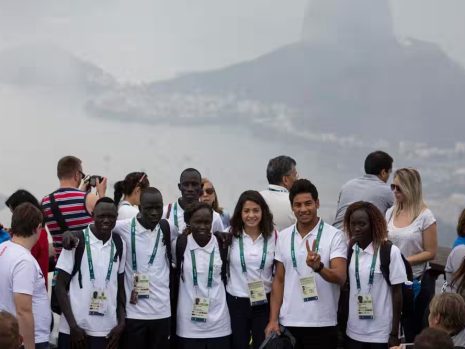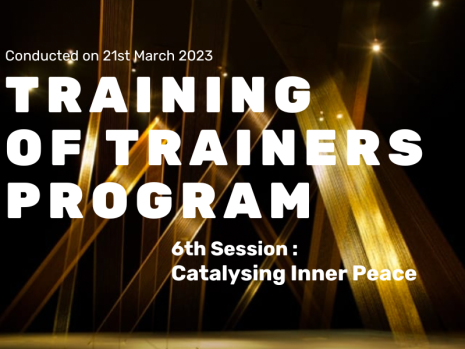PBB’s Training of Trainers, a hybrid “learn-teach- learn” co-creative program for displaced and migrant artists based in Berlin and coming from all around the world, kickstarted in February 2023. The second session was facilitated by Lis Haddad, a Brazilian multidisciplinary artist whose research focuses on the dynamics of movements taking place in bodies of exile and in the tension between that which is material vs intangible in the formation of territories.
Introduction
Our ToT group met digitally on 15th February 2023, for the second session of the program, which started with the sharing of personal experiences among the participants around an “Emotional Map” exercise, highlighting the processes of affection and transformation occurring between us and the urban landscapes in which we live. We then delved into a theoretical discussion about colonialism and practices of decolonization in education, arts and in our everyday lives and interactions, through the prism of the concept of micro-politics.
Emotional mapping – records of affective experiences of the Berlin cityscape
“Walking is simultaneously reading and writing the space. This sentence carries in itself a reflection: what does the sensitive and affective experience of walking and registering space say about us?” – Lis Haddad referencing the work of Francesco Careri (2002), ‘Walking as an Aesthetic Practice’
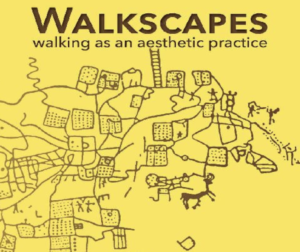
With this as a guiding question, and a very free format, the emotional map exercise designed by Lis opened the session with a deep and intimate moment for the participants to unfold their experiences and personal stories.
“I pinned down the route I took and I tried to resist the urge to take photos, and make it a bit poetic. I started from Lohmühlen bridge and crossed five bridges. The most beautiful part is where you change the neighborhoods, there is a street and a courtyard, it’s like a world of its own, going from Kreuzberg to Mitte, a transitional space […] Bridges, they are for sure a lot metaphors going on: being suspended, starting from somewhere and ending up somewhere else, transition, being near the water… that’s my route.” – Zeynep (participant artist)
From photos, drawings, collages, to an oral experience where one of our participants, Oksana, invited us to close our eyes and took us on a walk with her, this exercise highlighted the diversity of affections and emotions that shape our different relationships to, and experiences of the city. These subjective experiences are also deeply embodied, invoking our different senses, and this was especially strong in the oral walking experience proposed by Oksana, where the centrality of visuality left space to a multiplicity of sensations and affections.
Lis then invited us into her reflections, to ask ourselves: What affection is pulsating in the body? As we move into the world, how does our body interact with the materiality of the world, and shape our subjective experience? And how does colonialism as a system and ideology impact this phenomenological experience of the world?
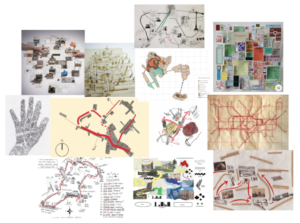
Micropolitics: possibilities for decolonial practices in the dramaturgy of the daily life
Lis started by presenting us with a body of theory referred to as the “subaltern studies”, which mark the emergence of postcolonial theory in South Asia, and which opened and guided her own reflections on colonialism. As she argues, the formal end of colonialism did not mean the end of colonialism as content and ideology. Persisting colonial structures affect our bodies, our imaginaries, what we hold for true, and the way we perceive the world and move within it.
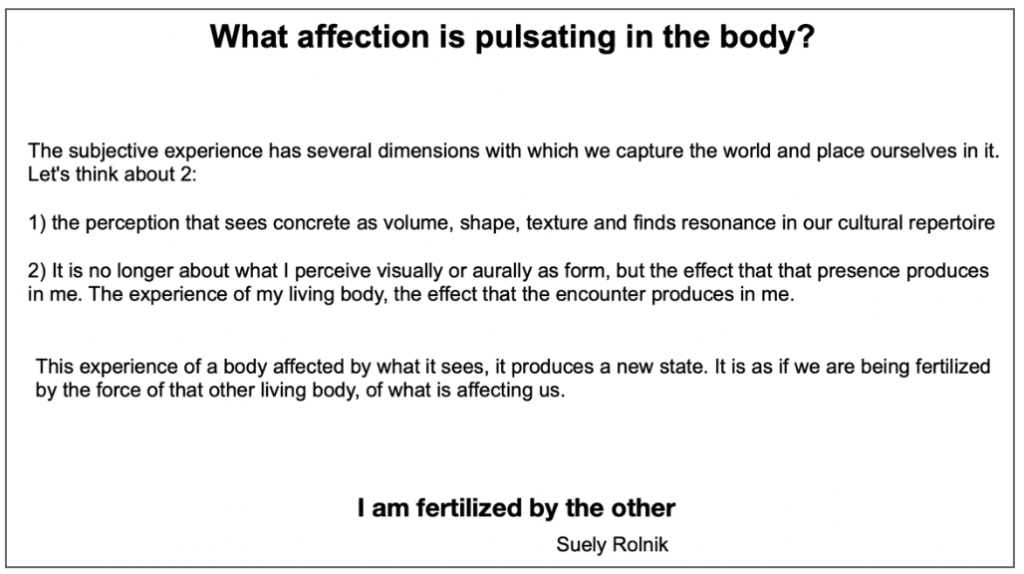
The concept of decolonization thus opens the possibility for practical interventions against the capitalist colonial system, by opening practical possibilities to interfere in the world, and to change what we hold as the truth.
As Lis emphasized, the place where we can start to practice decolonialization is the space of micropolitics. If we think that politics encompasses all of our reality and most of our movements, the notion of macro politics refers to politics happening on a large scale (e.g government laws, social movements), while the concept of micropolitics refers to the politics that shape daily interactions, relations and encounters with others and with the world.
As she phrases it beautifully: “Micro-politics is about the daily life dramaturgy”. It is within these daily interactions that decolonialization can be practiced, to change the social scenario.
“I feel like all meetings have the possibility to create a new social scenario. A new angle can come, and I can put myself in the movement to create something that I believe in.” – Lis (facilitator)
In our daily encounters, the adoption of a posture of openness can produce new and transformative scenarios, and if we accept to be affected by these meetings with others, we open to the possibility to be transformed by them, or, as Suely Rolnik puts it, to be “fertilized by the other”.
“For me this is something that I try to do all the time, to put myself in doubt all the time, and of course this is something that, I have my belief, I have some values that are not negotiable; but to put myself in doubt all the time is the exercise to put myself open to the other one. To be activated, fertilized and transformed by the other one. So I don’t come to the meeting with judgement, at least I try not to do it, with any kind of judgement, [..] on the moment when the explosion of this meeting happens, something that I try to do is not to judge. Let me be affected by this meeting, and after I can think about it. But let me just be affected by it.” – Lis (facilitator)
Decolonial pedagogies – the ignorant master
Educational and learning spaces are micro-political spaces where decolonization can play an important role in changing the social script and opening up new ways out of colonial and capitalist ideology. In these places, such as the ToT space, we can begin to explore this posture when we teach and when we learn and see what it does to us and to our interactions.
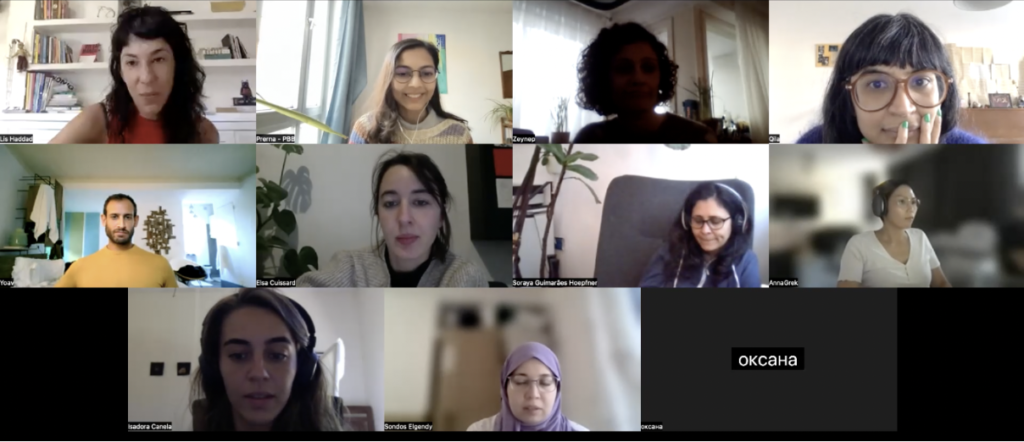
This is what Lis proposes in her ecology of knowledge: “The Ignorant Master” where she emphasizes the importance for the teacher to practice listening to the other, and to foster vulnerability and curiosity. This position of the ignorant master deeply resonates with the position Francesco Careri adopts on walking as a practice, as he writes:
“The point, in fact, is how to designate a direction, but with extensive openness to indeterminacy, and to listen to the projects of others.” – ‘Walking as an Aesthetic Practice’, 2002
This openness to indeterminacy is a posture that runs counter to the drive for control and power. Although these impulses are at the heart of the system we are trying to change, they are also human, as Soraya says:
“One of the struggles, because everything relating to colonialism resonates so deeply with what it means to be human, and that’s why it is so impregnated in us, it has to do with power, […] It’s a human condition. Even when we are doing the best of ourselves to practice decolonialization, it will remain hard to make the leap, because it feels inhuman, and we also have to learn to accept that. [..] This passion to learn and to change has to come with this understanding, otherwise, we are just repeating the same errors of those imposing their views. Which is not at all what you are proposing here, and that’s why I find It beautiful, you know, about keeping the curiosity and the sincere desire for learning and to share. I like the bullet points because they talk about this as a way of putting yourself out of this place of power and control, so definitely something to try hard to exercise, in interacting or in any kind of workshop or anything we would like to learn.” Soraya (participant artist)
When we practice this openness and vulnerability towards others, we must thus also be aware of, and embrace, our own limits. The session ended in a powerful exchange where we discussed those limits, when encountering people whose belief systems are diametrically opposed to ours. How can we find common ground for dialogue, and how can this dialogue push us to be more active in our own practice towards change?
“[…] this is a level of vulnerability that it’s not available all the time, it’s not all the time that we are interested to put ourselves in this place, because it requires a lot of energy. It’s much more easy when we meet someone who is compatible with our values. When we meet someone who is completely the opposite of our ideas, how can we manage this? I think it is the point. It’s interesting to be affected by these people, because this is a kind of push for us also.” – Lis (facilitator)
But also, how is refusing to engage and setting one’s boundaries necessary to preserve oneself?
“I would like to continue this conversation as well, because I’m from a part of the world where decoloniality is used by one of the world leaders to justify war, and to me, I really come to grapple with this concept after the invasion where Russia is calling the West Colonial and justifying the killing of people with it. So this all issue with how the concepts are used depending on the power, for me open questions, and sometimes these different opinions lead to direct deaths and violence. So I really struggle with that, even though I really want to continue decolonizing myself, and the way I learn. But as you said we have limits, or as you said we have to put limits, and I struggle with that.” – Oksana (participant artist)
Gaining other spaces
The common thread of this session was a reflection on the meeting as a moment of exchange and affection – encompassing encounters with other humans, as well as with the beings, objects and landscapes that surround us, such as the city – and bearing a transformative potential for oneself and the other.

Being open to vulnerability and affection is an exercise rather than a prescription, it is a way of being and playing with the world and others which breaks with functional, productivist modes of relations, dominating our societies and pervading every space. It is a delicate equilibrium that we need to find in every moment, taking into account our capacity to receive and to give, and which requires patience and care for the other, but as Francesco Careri argues:
“One motto that guides our walks is “lose time to gain space.” If we want to gain ‘other’ spaces we have to know how to play, to deliberately get out of a functional-productive system in order to enter a non-functional, unproductive system […]” – ‘Walking as an Aesthetic Practice’, 2002
